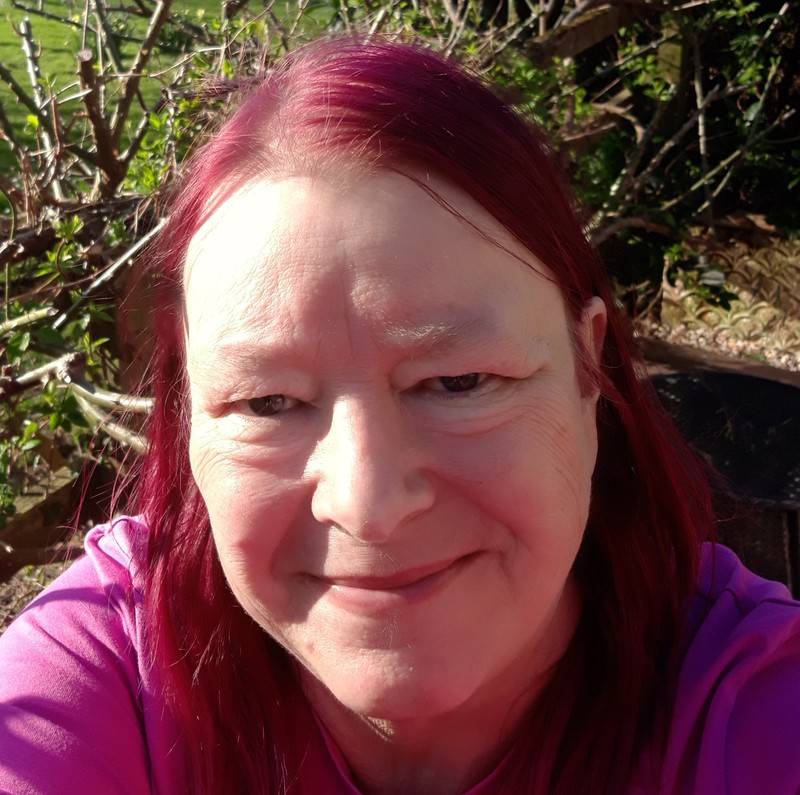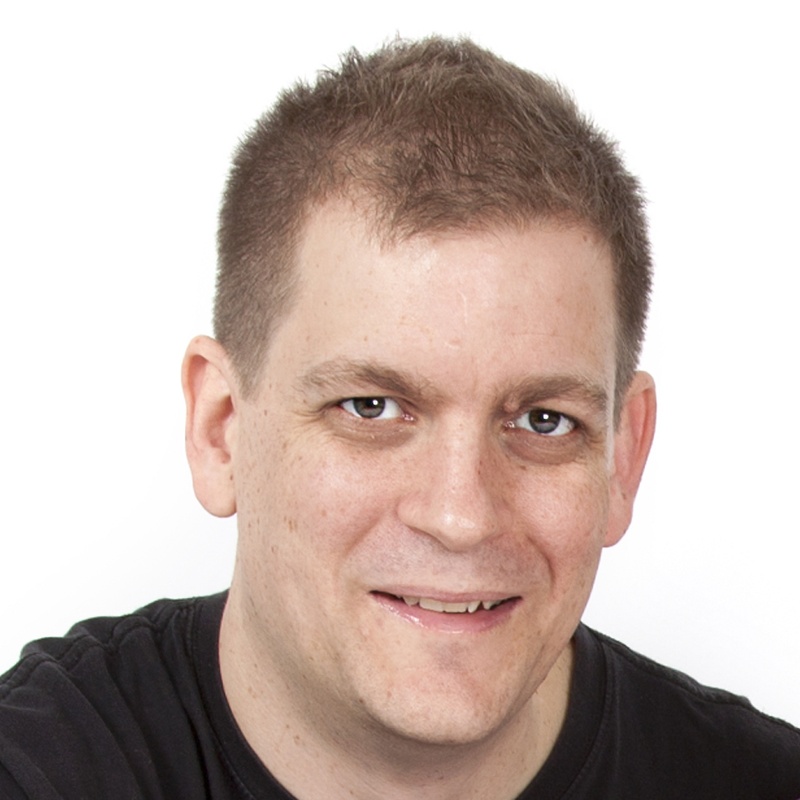The kids are alright
Gail Ollis & Dom Davis
What does this session involve?
Short talks on wide-ranging aspects of software engineering from young people embarking on their careers.
Who is speaking?
Assessment of my final year Software Engineering Culture module at the University of Portsmouth simulates engaging with a professional industry conference like ACCU 2024. Students submit a bio and a selection of proposals to our 'call for papers', act as the 'programme committee' to select the proposals they want to see, and finally present their own selected talk. This session will present a selection of talks from among the highest scoring proposals.
Why should I come to this session
Presenting at a professional conference makes the simulation real for students, allowing them to begin their careers knowing the value of meeting up with like-minded professionals like you. What they bring to the table is a fresh, thoughtful and thought-provoking perspective.
What will the talks be about?
The topics were selected after the module's own "Call for Papers" which closed in April 2024. Previous talks can be seen on the ACCU YouTube channel.
The Software Engineering Culture module encourages students to learn from experienced professionals, share their own knowledge and engage in informed debate. We do not do any technical training - they can learn new skills easily by this stage of their degree course. Instead we explore material not usually taught on software engineering courses, including issues of inclusion & systemic inequality, the burgeoning responsibility upon Software Engineers to promote healthy work environments for all, and evolution of ideas across the history of the profession and into the future. We help students to learn from the past, be good colleagues in the present and look to the future of their careers.
The talks:
Amplifying Black Women's Voices: Building Inclusive Tech Spaces Beyond Tokenism.
Yemi Adenekan (She/Her)
The tech sector deprives itself of the smartness and the diversity of black women although it needs them. These women also have to deal with discrimination and microaggressions. This presentation is intended to uncover the challenges experienced by black women, in the quest for a truly demographic equality.
Getting inspiration from talks like "Black Women Lead: "Leading the Tech Landscape Transformation‟ by Kimberly Bryant (Founder, Black Girls CODE) in Grace Hopper Celebration 2023, this interactive session is not about black female representation only. It offers authentic participation that creates a climate of inclusivity and psychological safety for black women. Participants will be taught how to act on challenging microaggressions, how to create safe environments for tough discussions, and how to speak up for equitable opportunities.
Through boosting the volume of black voices, and by eliminating existing toxicity, we can manufacture the tech-industry environment in which all individuals have an opportunity to realise their maximum potential.
Yemi, a final year software engineering student, is very eager to take part in this conference as it will be her first. Developed through the principles of programming and problem-solving, she purposefully finds her own way to learn from the best technology masters and communicate with professional peers.
Shaping Perception: The Evolution of 3D Graphics and Cultural Transformation
Ben Kyd (He/Him)
From the beginnings of wireframes to the stunning realism of modern renders, the evolution of 3D graphics has been nothing short of world-changing. In this talk, we will explore how the historical development of 3D graphics has profoundly influenced our cultural landscape. Tracing the journey from early video games to blockbuster films and virtual reality experiences, we will uncover the pivotal moments and technological breakthroughs that have reshaped our perceptions of art, entertainment, and communication. Through a blend of historical analysis, industry insights, and cultural critique, attendees will gain a deeper understanding of how 3D graphics have not only transformed the way we create and consume media but also influenced societal norms, trends, and values.
Ben is an award-winning (he won a game jam once) passionate enthusiast of embedded engineering and graphics programming, currently studying at the University of Portsmouth. With a deep-rooted fascination for the intersection of hardware and software, Ben thrives in bringing digital worlds to life through the seamless integration of technology and visual aesthetics.
Gamification: Falling down the leader board?
Char Ryder (They/Them)
Attention is one of the most precious commodities a system can capture, and the most successful trap a system can deploy is gamification. This strategic implementation of game mechanics and systems to non-game applications is prevalent in almost every modern system - technical or otherwise.
However, recent research has shone a spotlight on the dark side of gamification and unveiled the damage it can do to its audience. In this talk, we’ll explore the unseen side of gamification, explore its consequences, and discuss how best to counteract them.
Proud to be a course representative for 10 years running, Char is a passionate individual who excels at communication and organisation. When their course concludes, they look forward to returning to full-time development work, from which they aim to transition into a project management role where they can let their soft skills thrive.
When they’re not working or studying, Char enjoys gaming of all sorts - whether exploring vast digital worlds, tense pen-and-paper tales or complex strategic board games.
To the moon and back with 4Kb of RAM.
Adam Smart (He/Him)
In 1969 humankind did the unthinkable. We took our first steps on a celestial body other than our own, but to get to the moon and back you need a guidance system. Enter the Apollo Guidance Computer (AGC). What’s the catch? Well for a start in the 1960s computers were the size of a large room and had the computing power of a pocket calculator. How did NASA create one of the smallest and lightest computers ever made for the time? How did NASA develop the first set of software engineering principles? How did NASA’s Display and Keyboard Unit (DSKY) influence the future of human-computer interaction systems? In this talk we’ll discuss the challenges and solutions of guiding a spacecraft to the moon and back in the 1960s. We’ll also discuss the legacy of the Apollo Guidance Computer and how it influenced modern software development.
Adam Smart is a software engineering student in his final year of study. During his time at university he has spent his time learning about an array of subject matters but has put particular focus on data analytics. His hobbies and areas of interest outside software include Motorsport, particularly Formula 1 and you’ll often find him setting laps around the local karting track. He also has a particular interest in space, particularly the space race from the 1960’s but also likes to keep up to date with the current advancements in space exploration from companies such as NASA and Space X. Adam is always looking for ways to tie his software skills back into the activities he loves and hopes that one day he can put his data analytics skills to good use with the RedBull Racing formula one team!
From Seed to Sabotage: The fight for Right to Repair.
Joshua Webster (He/Him)
Join us as we delve into the multifaceted issue of Right to Repair within the realm of software engineering. Right to Repair and its associated issues raise several legal, ethical, and practical questions about who truly owns and controls the technology we rely on in our day to day lives. We'll explore the challenges faced by individuals and businesses, specifically farmers, who more often than not find themselves locked out of repairing their own equipment due to the arbitrary software restrictions put in place by manufacturers. Software engineers have the skills to try and overcome these hurdles and are key figures in the Right to Repair movement – they have the potential to develop tools and solutions that allow users to fix the devices they own. Discover the legal battles between innovation and monopolistic control, and why a collaborative approach is essential for building a future where technology serves us, not the other way round.
Joshua is a caffeine-addicted hybrid engineer studying software engineering with a passion for electrical engineering. He recently completed a year-long placement at Jaguar Land Rover (JLR). During his time with JLR he masqueraded as an audio hardware integration engineer (as a result he also picked up an expensive taste in audio that he cannot afford). Joshua and a friend also “ran” a company focused on overpriced keyboards and other bits and bobs.
Joshua regularly plays in multiple Dungeons and Dragons campaigns with plans to run his own soon. He is also an avid (and likes to think half-decent) baker as many of his peers may attest to. Joshua plays a range of sports (running, climbing, fencing, and motorsport) with a current focus on running and fencing (not simultaneously, most of the time…). Joshua has recently discovered IMAX cinema which resulted in over 500 miles of travel.
Work-Work Balance: Organisational culture matters
Will Woods (He/Him)
The presentation will cover what organisational culture is, and its role in staff motivation and job satisfaction, exploring how it can either enhance or impede productivity and what makes it so important.
In any workplace, culture has a huge impact on people and how they work, but especially in software engineering, where the pressure to work long hours, the risk of burnout, and always reacting to problems can really change how employees feel and perform. Addressing this, the talk will cover, why a positive culture is important for the workplace, the impact that negative and positive cultures have on us at work, how we can work towards creating a positive culture, and ways that organisational cultures can be assessed.
Will is a Software Engineering student, but following his studies on modules surrounding business and organisational systems, he’s become more interested in the how and why behind business operations and the human side of organisations and its intersection with technology. In his talk, he plans on delving into some of these topics and dissecting how some of the more intangible aspects of business have very tangible impacts on our work lives.
After finishing his degree in Software Engineering, he looks forward to bidding “farewell” to coding and moving into management consulting. Here he aspires to deploy his skills in business operations analysis by working 12 hours a day rearranging words on a slide deck. He’s hoping that this will someday pay enough money to live in a stone cottage in the Cotswolds and run a vintage Land Rover.
Gail Ollis

Sharing knowledge is the new day job in an accidental second career as an academic. Gail has taught programming and cyberpsychology, researched cyber security for software developers, and now has fun teaching problem solving and software engineering to final year students at the University of Portsmouth.
Dom Davis

Dom is an enthusiastic and impassioned speaker [read: he gabbles] who uses a blend of irreverent sarcasm and flippant humour to bring complex subjects to a broad audience. Whether or not they understand him is up for debate, but he likes to believe they do.